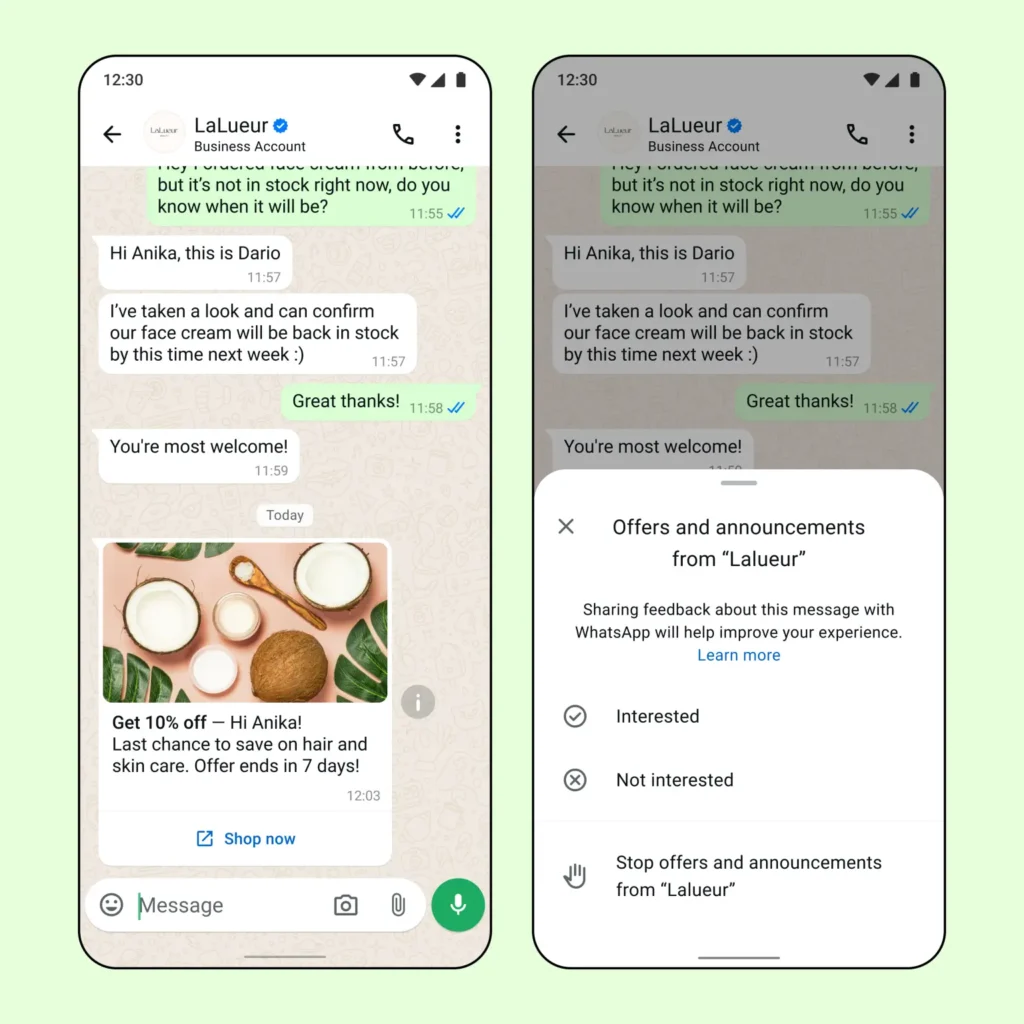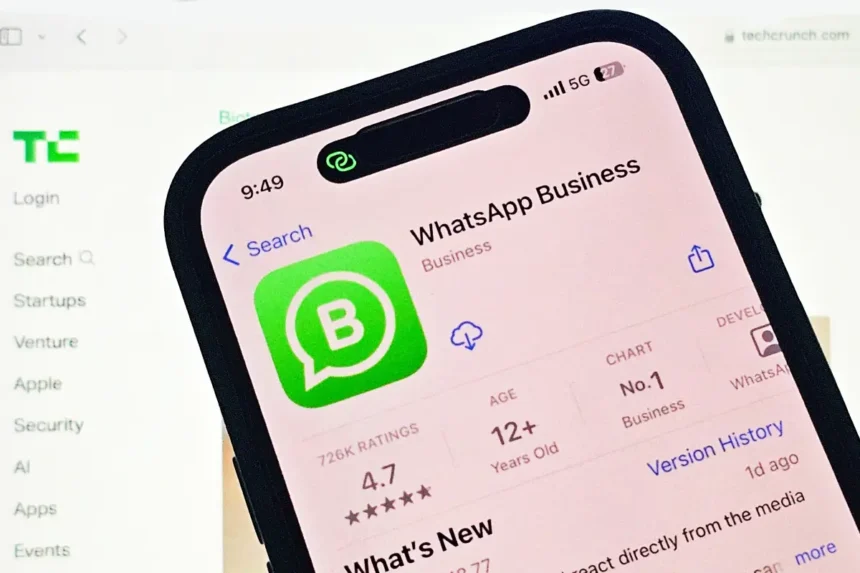Over the years, WhatsApp Business has become a powerful tool for over 200 million monthly users, connecting companies with their customers seamlessly. However, this convenience has come with a price: an influx of business messages, some of which users perceive as spam. Until now, the only recourse for overwhelmed users was to block a business account entirely, cutting off all communication.
That’s changing. WhatsApp is finally rolling out much-needed features that let users control the types of messages they receive from businesses. This marks a significant step toward enhancing user experience without disrupting the platform’s business potential.
A New Era of Messaging Preferences
WhatsApp is introducing tools that allow users to manage their interaction with businesses more granularly. Instead of an all-or-nothing approach, users can now choose what kinds of messages they want to receive.
Meta, WhatsApp’s parent company, is testing new feedback mechanisms with buttons like “Interested”, “Not Interested”, “Stop”, and “Resume” for specific categories of messages. These tools aim to give users more control while helping businesses refine their communication strategies.
For instance, imagine receiving “offers and announcements” from a retail brand. If these promotions aren’t your cup of tea, you can now stop them altogether. But should you wish to opt back in—say, during a festive sale—you’ll have the flexibility to resume these messages.

This global testing phase is already generating buzz. Here’s how it works:
- Message Categories: Businesses send messages through WhatsApp’s API in one of four categories:
- Marketing – Promotional offers, new product launches.
- Utility – Order updates, account balances.
- Authentication – One-time passwords.
- Service – Customer support inquiries.
Previously, there was no way to stop receiving marketing messages while still allowing utility or service updates. This lack of flexibility frustrated users, particularly in regions where WhatsApp is the primary communication channel.
Why This Change Matters
For many people in countries like India and Brazil, WhatsApp has become more than a messaging app—it’s a lifeline. With email often taking a backseat, WhatsApp acts as the primary channel for communication between individuals and businesses. Yet, the inability to “unsubscribe” from promotional messages led to inboxes clogged with spam, overshadowing personal conversations.
On platforms like email, users can easily opt out of promotional material with a simple “unsubscribe” button. WhatsApp, despite being a communication giant, lacked this feature until now. The introduction of granular controls is a long-overdue move, aligning WhatsApp with modern user expectations.
Meta’s Vision for Balancing Business and User Needs
Nikila Srinivasan, VP of Product Management for Messaging Monetization at Meta, recently shed light on WhatsApp’s strategy during a WhatsApp Business event in India.
“One important thing we do is to give users transparency about their interactions with businesses,” Srinivasan said. “If you don’t want to interact, the strongest signal you can send is to block and report the business. Beyond that, we’re thinking about how users can express more specific preferences.”
The company’s efforts don’t stop at user controls. Meta is also working to educate businesses on maintaining high communication standards. By helping businesses understand the impact of irrelevant or excessive messaging, WhatsApp hopes to reduce spam at the source.
Earlier this year, WhatsApp also placed restrictions on the number of marketing messages users could receive daily, though it didn’t specify the exact limits.
A Shift in WhatsApp’s Evolution
Originally marketed as a platform for personal conversations, WhatsApp has evolved significantly. Features like communities, broadcast channels, and business messaging have transformed it into a multifunctional app. While these tools bring new opportunities, they also create challenges, particularly when business messages clutter personal chat inboxes.
Meta has made it clear that the WhatsApp Business platform is a major revenue driver. In Q3 2024, the platform contributed to the company’s $434 million in “other apps” revenue. However, striking a balance between monetization and user satisfaction remains a delicate act.
When asked whether WhatsApp might create a separate tab for business messages, Srinivasan hinted at a different approach.
“The core of WhatsApp is to be in your inbox,” she said. “While we’re inspired by helping businesses, our goal is to ensure that what belongs in your inbox meets a high standard.”
The Road Ahead
As WhatsApp begins rolling out these features globally, users can expect a more personalized and clutter-free messaging experience. These tools will empower users to maintain control over their inbox while allowing businesses to tailor their outreach strategies more effectively.
For businesses, this isn’t just about compliance—it’s an opportunity to build meaningful, trusted relationships with customers. And for users, it’s a step toward reclaiming their inbox without sacrificing essential updates.
In the coming months, these updates will shape how businesses and consumers engage on WhatsApp. With user-centric controls and business education at its core, the platform is set to redefine digital communication once again.










